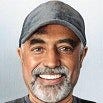I am not sure how many of you watched the recent interview CNN’s Wolf Blitzer had with the Treasury Secretary, Janet Yellen. Wolf Blitzer had no hesitation in pinning Yellen down on how wrong she was on her inflation outlook from last year and even played back her last year’s video.
Yellen was so apologetic like a nervous clerk in front of her boss. It really appalls me to see these people in power whose only job is to analyze and anticipate matters relating to the economy and communicate to the public get this all wrong repeatedly like clockwork. You all know how Powell himself changed his tone on inflation.
They all have Ivy League pedigree - Yale, Stanford, and Harvard. So what did they really study there? I have never been to any of these elite schools, not even to a good college for that matter. But I can proudly say that I have a better track record in my writings on the economy than their prognostications.
Is it that they have been given a narrative to communicate by the establishment even though they know what they are communicating is totally wrong? It really baffles me. What I have learned over my decades in the markets is one should develop independent thinking, do tons of research and be open to the idea of being wrong. Above all be very passionate about it.
Please don’t get me wrong, I am all for good education, but it doesn’t necessarily have to be from the hallowed halls of these elite ivory towers. Since that is out of my chest let’s turn to the markets.
As of June 1, the Fed has started to act on its plans to go ahead with the quantitative tightening program (QT). What it means is that they will allow the securities that they bought in the last two years or so mainly forced by the pandemic, to mature from this point forward, without reinvesting the proceeds. Their plan is to extract a trillion dollars from the system in a year. They also believe a trillion dollars worth of QT is equivalent to half a percent of a rate hike.
How has this impacted the markets and what is ahead of us? They first disclosed this plan in their Jan 5 meeting when they published the outcomes of their December meeting.
So what did the stocks do from then? The anticipation of reversing the QE has already contributed to a steep decline in stocks. Now the QT is upon us and I don’t think the market is going to react negatively to this. However, the historical track record of QE exists is not very clear and it has not been good.
In every case, the “Quantitative Tightening” experiments ended with more QE globally. And it was mostly not because of a weaker or crashing stock market. The Fed has messed themselves so much with its ad-hoc decisions that at times they have no clue about what the final outcomes are.
Remember, back in Sep 2019, there was a 300-point spike in the overnight lending market. The Fed was able to handle that situation without creating any real panic in the markets. This is what the Fed had to say:
“Strains in the money market in September occurred against a backdrop of a declining level of reserves due to the Fed’s balance sheet normalization and heavy issuance of treasury securities.”
Then the Fed was forced to rescue the overnight lending rate. It is important for us to understand that reversing the Fed balance sheet is an experiment with unknown, uncertain outcomes.
If you received value from this post, and you’d like to send some back, or if you’d like to signal to me to continue spending time on these types of explorations, feel free to buy me coffees (thank you!):
So, there we go. Thanks for reading Breezy Briefings. If you enjoyed this, I'd really appreciate it if you could take a second and tell a friend. Honestly. It makes such a big difference.
Forward this email. Recommend the newsletter. Share on Twitter, WhatsApp, Telegram, LinkedIn, Slack, wherever!
Join Breezy Briefings’ Official Telegram Channel: https://t.me/BreezyBriefings
Abraham George is a seasoned investment manager with more than 40 years of experience in trading & investment and multi-billion dollar portfolio management spanning diverse environments like banks (HSBC, ADCB), sovereign wealth fund (ADIA), a royal family office and a hedge fund. Currently, he is a co-founder of a new hedge fund where foreign citizens can invest in Indian growth stocks like Tanla operating in hyper-growth markets like CPaaS.



